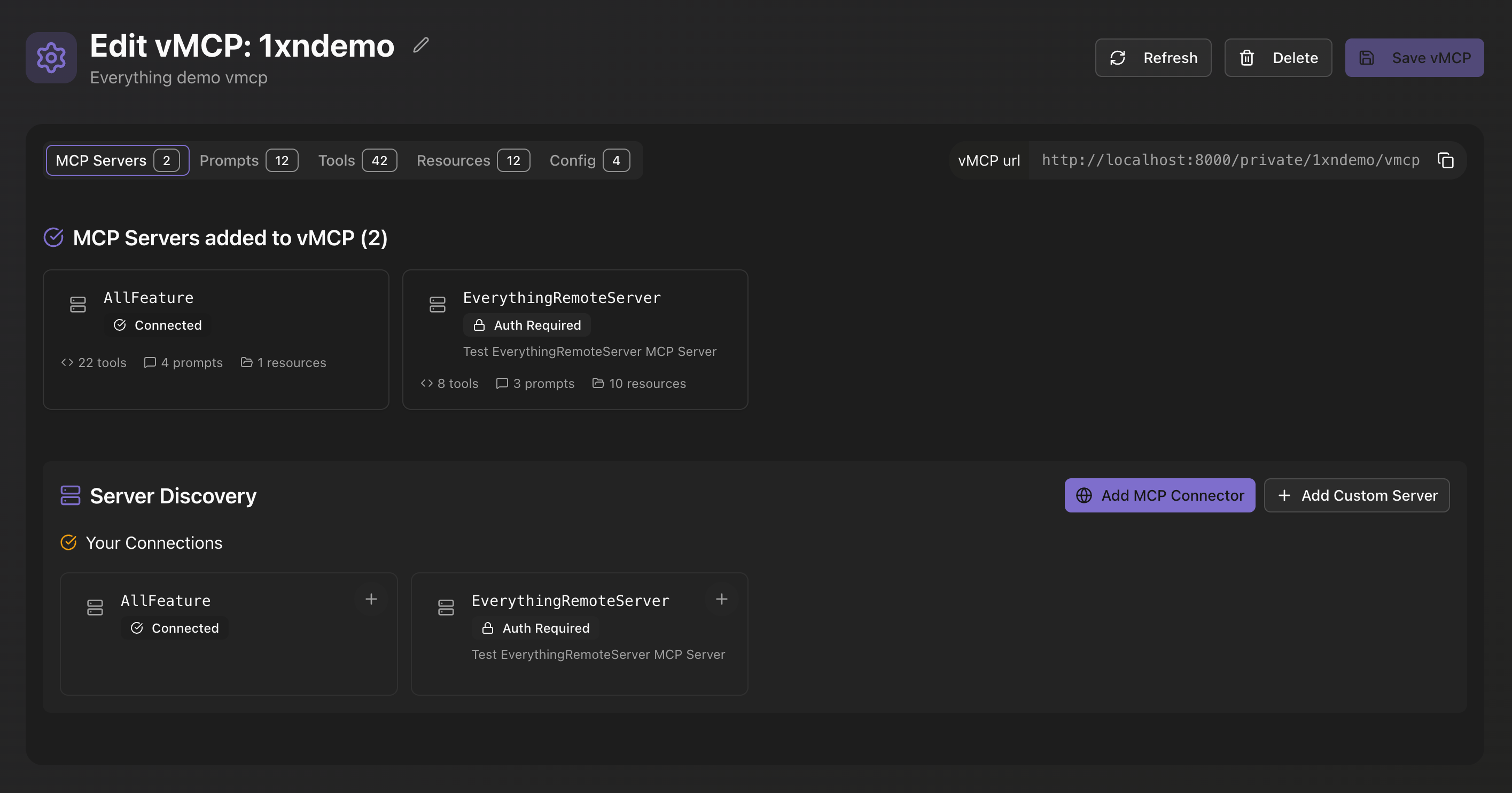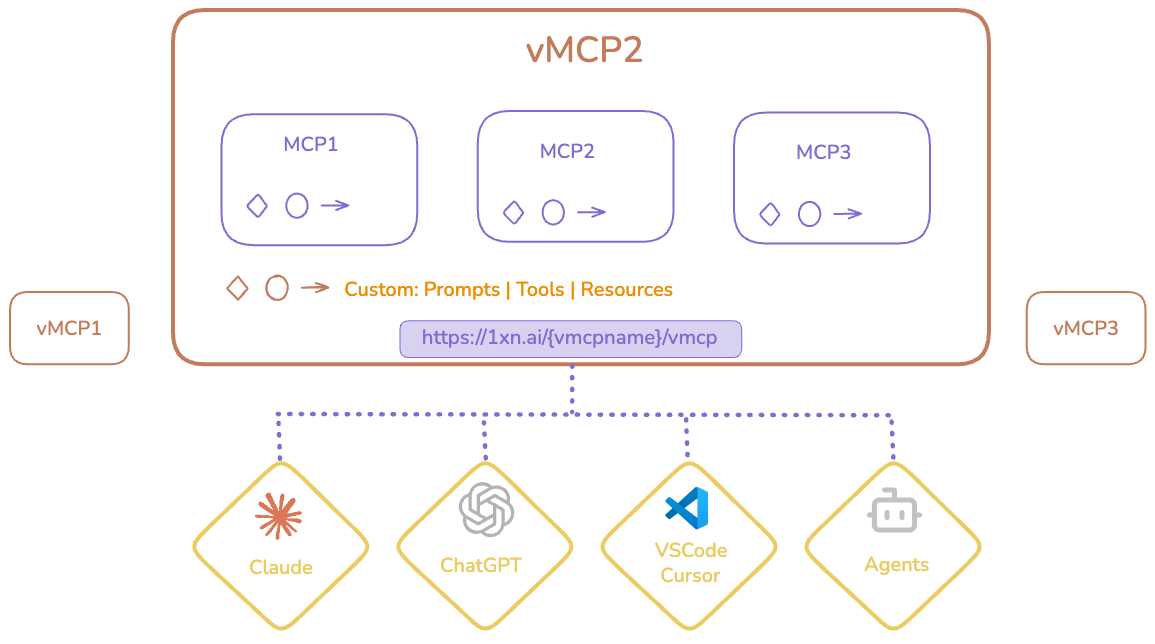Announcing vMCP 0.5.0 and opensource release
We're excited to introduce virtual MCPs and announce the open-source release of vMCP 0.5.0. Making AI workflows and agent development more accessible and powerful. Today, vMCP is fully open source under the MIT license, empowering non-developer, developers and organizations to build sophisticated AI workflows with MCPs without vendor any lock-in. Customise, Compose and extend MCPs for your AI needs.
Dependable AI tasks need goals, planning, reasoning, tool-use and context engineering. vMCPs are our first step to build useful AI assistants and agents by improving tool-use and context engineering
What is vMCP?
vMCP (virtual Model Context Protocol) is an AI configuration and management platform built on top of the Model Context Protocol. Lego blocks for AI workflows and agents, allowing you to compose, customize and extend multiple MCPs into powerful, reusable AI components. Connect vMCPs to your AI clients (Claude, Chatgpt, VSCode) or to your agents and get the power and configurability of vMCPs.
vMCP is both
- a specification that builds on and extends MCPs vMCP.json
- a platform to create and deploy vMCPs

vMCP Architecture

Think of vMCP as a drop-in replacement for MCPs, but with superpowers:
- Configure once, use everywhere across all your AI clients and agents
- Mix and fine-tune multiple MCPs for specific use cases with precision
- Share and reuse vMCPs across your team and the community
Why We Built This
The Model Context Protocol has unlocked incredible possibilities for AI integrations, but users and developers quickly hit limitations:
- Configuration Hell: Managing MCP configs across multiple clients (Claude, ChatGPT, VSCode, Cursor, Gemini) is tedious
- Auth: Each mcp client needs its own auth for all the MCPs. vMCPs gives a standard auth for all MCPs
- Lack of Customization: Can't modify or extend existing MCPs for specific workflow needs
- No Composition: Building complex workflows requires piecing together multiple tools manually in code
vMCP solves these problems by providing a layer of abstraction and a no-code configuration interface on top of MCPs.
